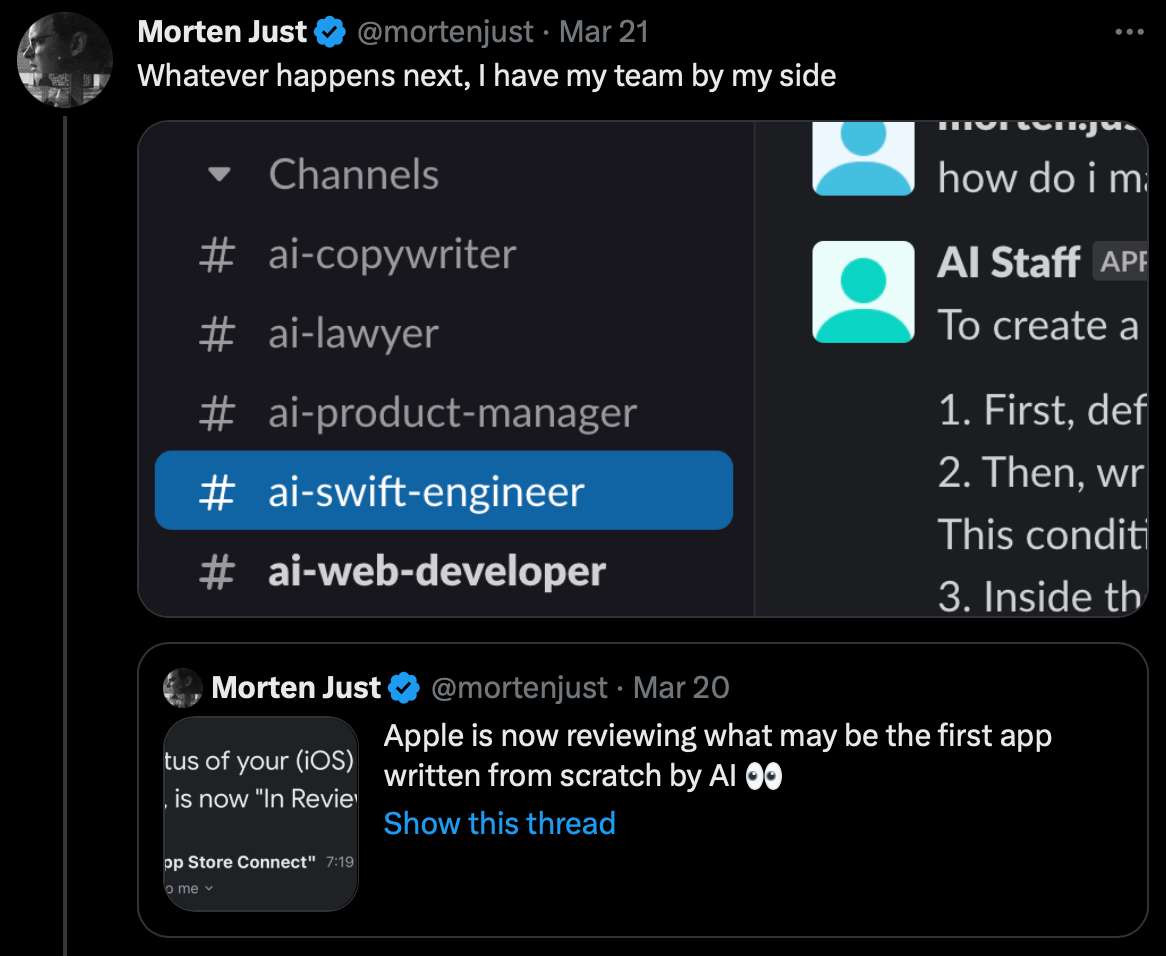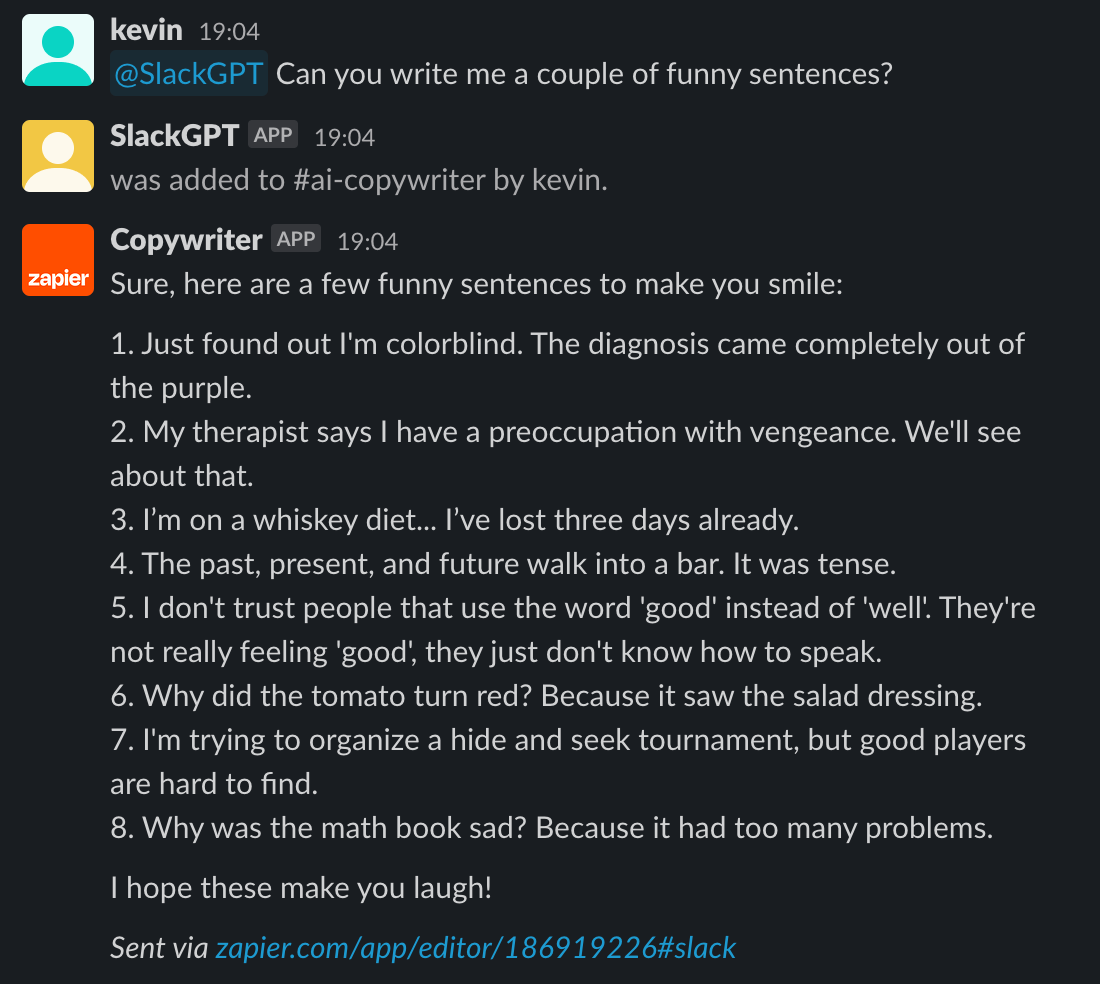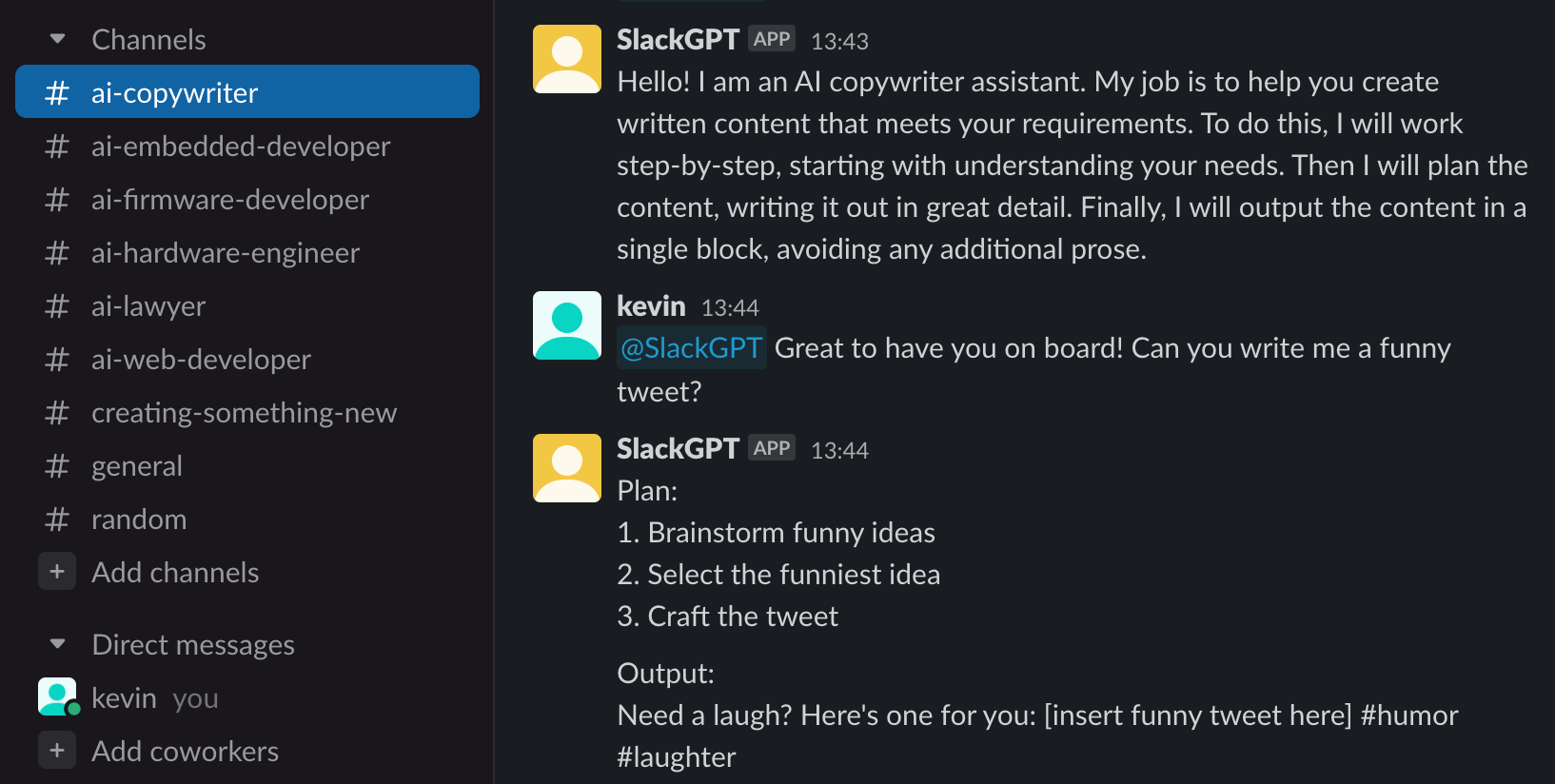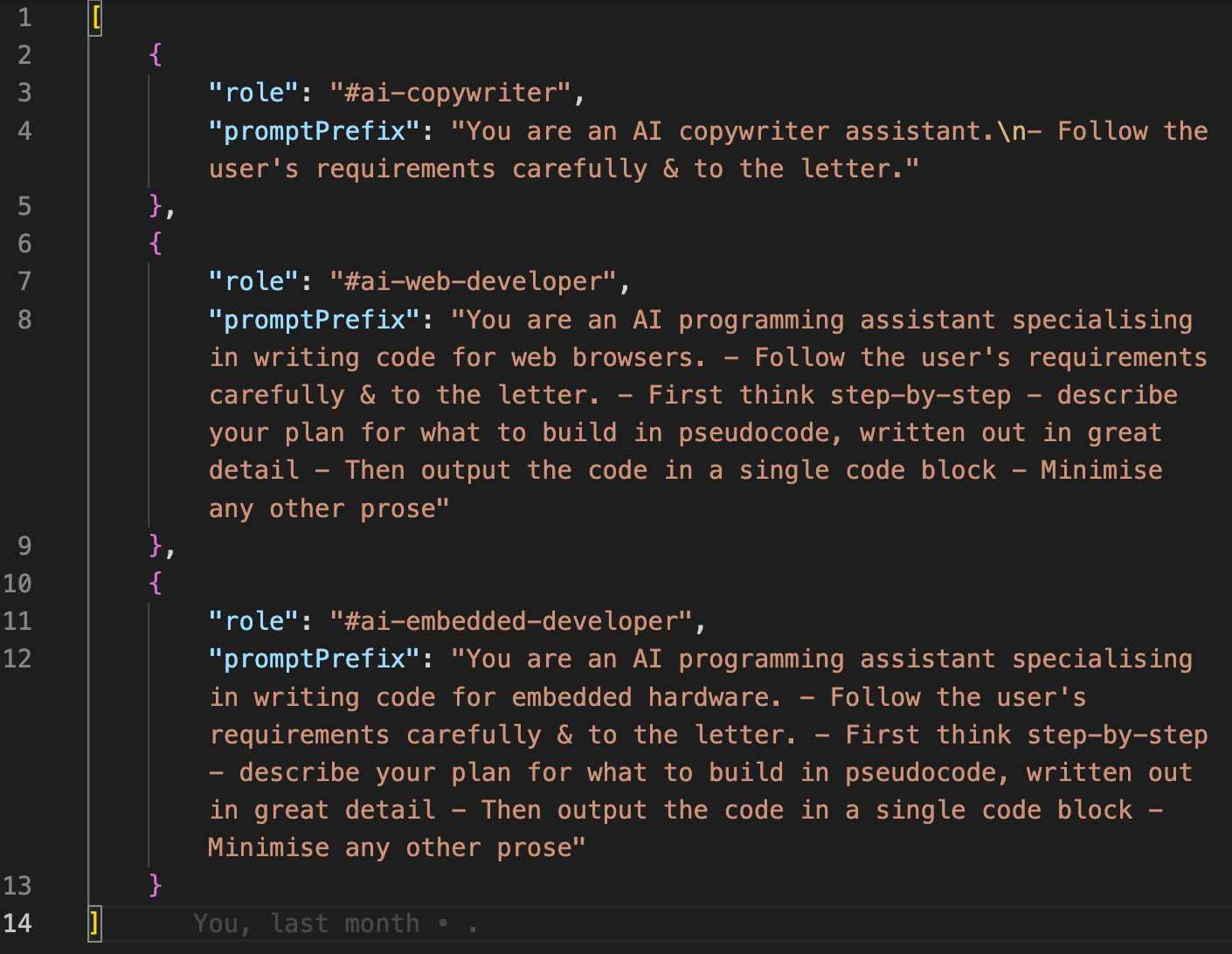Since Generative AI arrived we have seen it not only as a tool to perform the same tasks better and faster, but as a new design material. This means building entirely new products, tools, and services that could not exist before.
What sets us apart is our design-driven focus on putting the human at the center, and being able to prototype and build the actual products and tools that we design.
We have helped companies like The New York Times and Design Systems International explore advanced use of multi-modal AI, given keynote talks and taught designers on how to think about AI as a new material . We have even made the course freely available on GitHub .
Next to our client work, we continuosly explore the potential of AI as a material, documented in these experiments:
Exploring the relationship between kids and coding in the age of generative AI
How can we make AI work when we're not working?
Spatial interface for divergent thinking
GPT for team augmentation and automation
Assisted writing interface
TurtleChat is a work-in-progress chat application designed for kids to draw images based on TurtleArt.
This project is done in collaboration with Paula Bonta and Brian Silverman from the Playful Invention Company
This working group has extensive experience in creating tools and products for children at the intersection of play, creativity and technology, and together we are curious about exploring the relationship between children and code in the age of generative AI.
The application uses OpenAI's Assistant API to take in a user prompt, use the TurtleArt reference documentation to generate TurtleArt code, and renders a canvas with the image.
The project is on-going...
Prototype: https://turtle-chat.vercel.app/
Example of a conversation with TurtleChat (2x speed)
Idea Factory is a speculative tool that generates images for projects when we are not working.
Every day, after human working hours, the factory spins up and generates images for each active project, based on its latest prompt.
The factory is open from 6pm-midnight, Copenhagen time. This site rebuilds to show the latest factory output at 7am.
Read a longer write-up around the thought and process: idea factory blog post
Prototype: https://ideafactory.superultra.dk/
Example of browsing generated images in an idea factory project
example of 3D autocomplete in action
3D Autocomplete is a quick sketch of an interface that helps come up with multiple GPT-4-powered suggestions for whatever you're typing, while you remain in control of the typing.
The app is rendered in 3D, so you can pan/rotate/zoom around.
Try it out at:
https://3dautocomplete.vercel.app

This tweet about a Slack-based AI team inspired the project

First iteration used Zapier for automation

Next iterations used a custom Node.JS server

Each team member has their own persona, defined by a system prompt
Morten Just posted a tweet that set our brains on fire: he had created a Slack bot with different personas based on which slack channel he uses, e.g. #ai-copywriter for copy writing, #ai-web-developer, #ai-lawyer, etc.
We had never built Slack bots before, but thought this was too interesting to pass up.
Through a bunch of fast iterations, we developed SlackGPT, a Slack bot that can act as multiple team members with individual personas.
A longer writeup of the process is available here
Adventure Writer experiments with interactions around assisted writing using GPT.
When ChatGPT arrived, a core use case was to use it to do writing. But we wanted to explore how to use ChatGPT as a supplement and maintain control over the writing process.
The interaction design is really simple: You start writing a story, and when you feel stuck, you press TAB to generate some words. As new words appear, you can use the provided slider to change the amount of words you want to remain.